How Florida Atlantic University connects its students to success
This public research university is an emerging national leader in student retention, graduation and economic mobility. It’s moving the needle even more with a new peer mentoring program for first-year and transfer students.
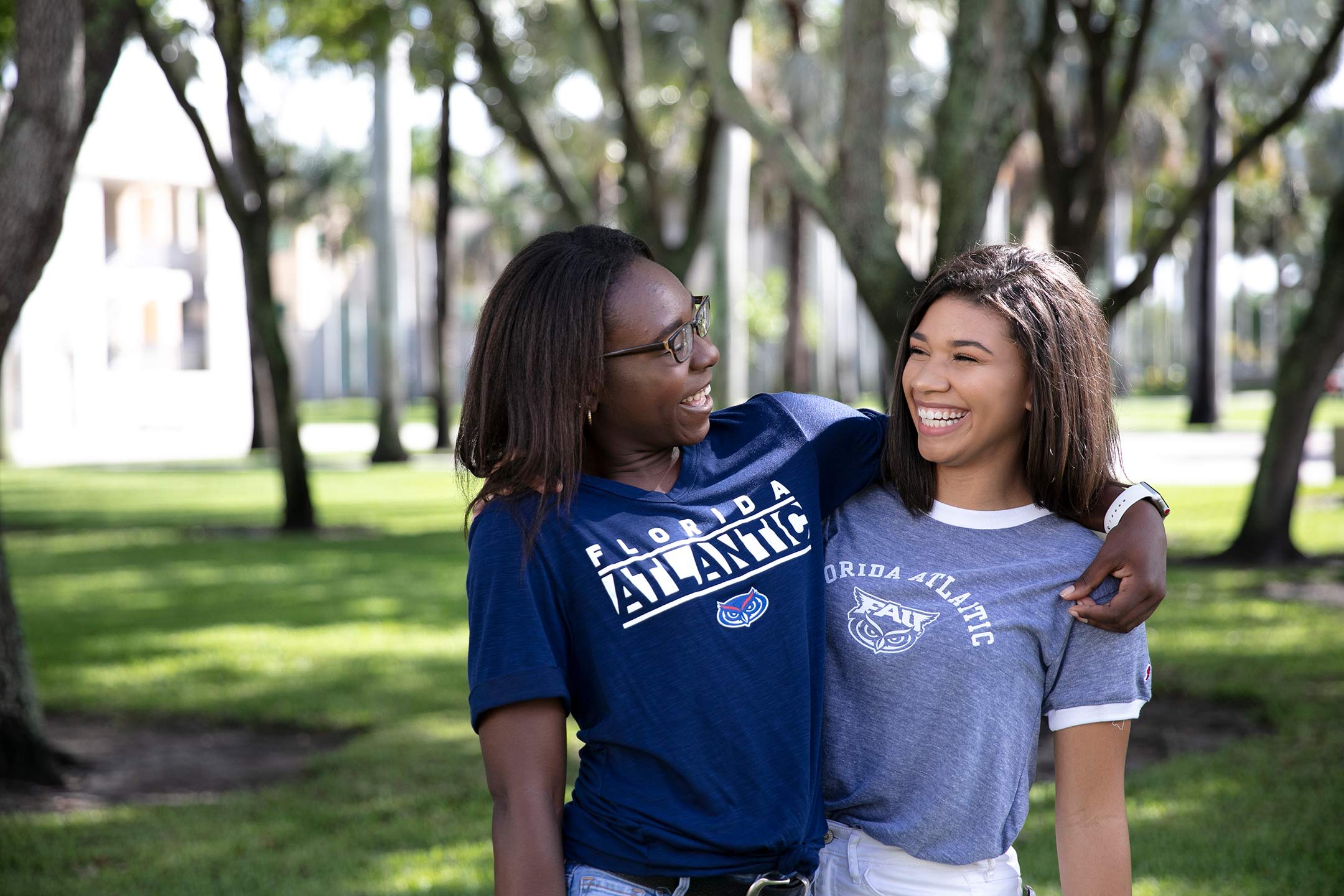
Florida Atlantic University has emerged over the past decade as a national leader in student success.
Retention and graduation rates are up, and social and economic mobility are on the rise. The key to Florida Atlantic’s impressive and nationally recognized gains has been a comprehensive, coordinated and high-impact suite of student success initiatives that include academic coaching, financial assistance and a robust undergraduate research program.
Last fall, Florida Atlantic doubled down on one of these strategies — peer mentoring — and the revamped program has exceeded expectations. In just one year, First-Year Connections scaled quickly and produced significant gains in persistence and retention among multiple student groups.
“The name of the program indicates exactly what we’re trying to do,” said Larry Faerman, Ph.D., vice president for student affairs. “We want our students to connect to each other, to the university and to the learning environment, and then we want to strengthen that connection so they stay with us for that first year and then for the remaining three.”
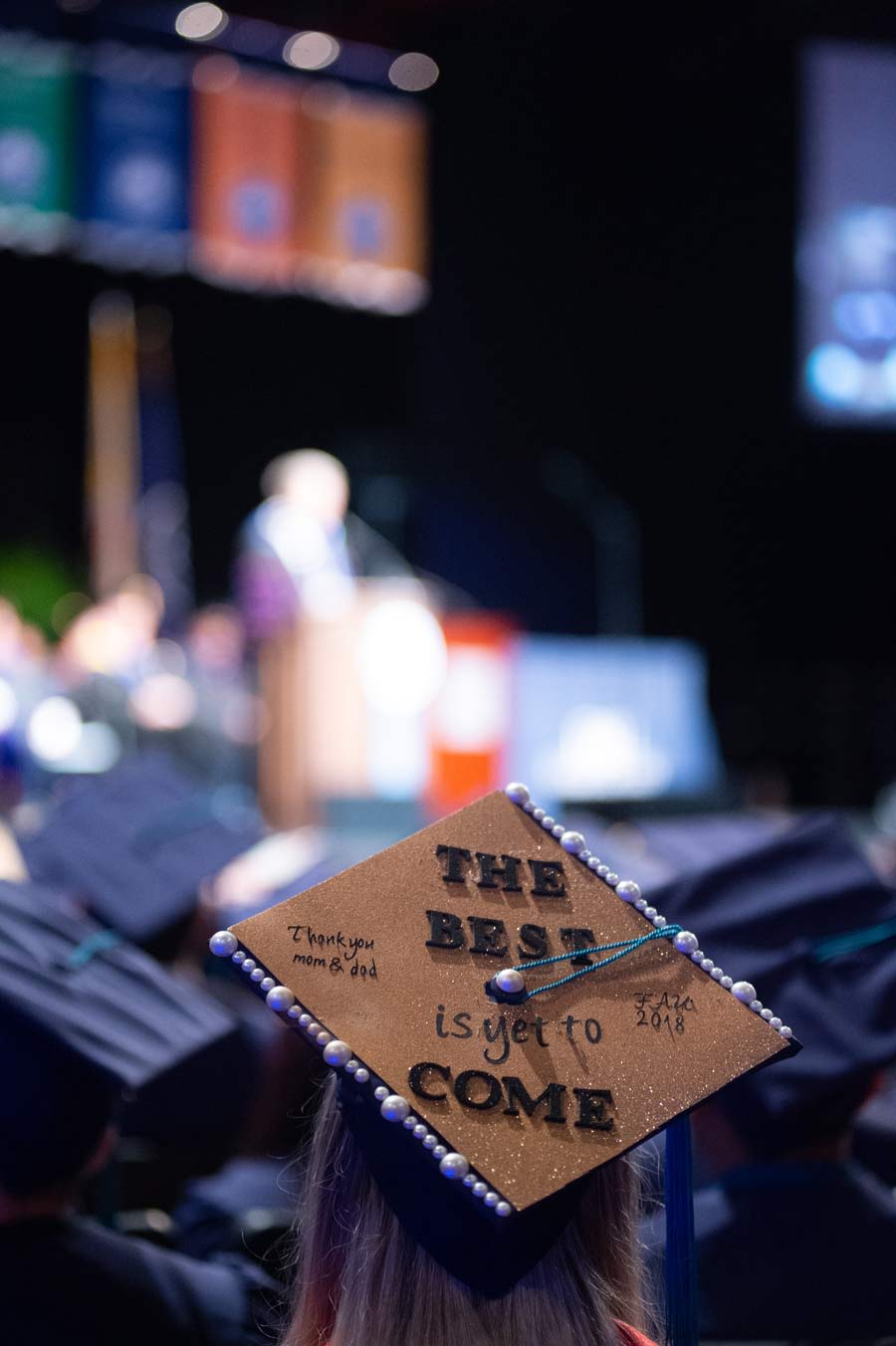
Digging into the data
Florida Atlantic prides itself on being the state’s most diverse public university.
With its main campus in the South Florida city of Boca Raton, the university of nearly 30,000 students draws significant numbers of students of color, first-generation students and students eligible for Pell Grants. Roughly a third of its undergraduates transfer in from other institutions. Nearly 80% of undergraduates commute to campus. About half of its students hold down jobs, and many have family responsibilities as well.
Despite significant gains in student retention and graduation, a deeper dive into the data showed that more work remained. Male students and transfer students trailed their peers on these crucial measures.
Florida Atlantic for years has deployed numerous highly effective mentoring programs that have proven successful for creating student engagement and a sense of belonging that has translated into improved persistence, retention and graduation rates. But there were gaps in these services. Students who lived on campus could seek advice from resident assistants; transfer students lacked that resource. Many of the mentoring programs, meanwhile, focused on specific subgroups, such as business majors, students enrolled in the honors college and international students.
As the world emerged from the COVID-19 pandemic, students reported that they were coming to college with a sense of loss and isolation and were having difficulty connecting with one other. Florida Atlantic decided to meet that challenge head-on and at scale.
Another dive into the data revealed something: During student orientation, new students always gave high marks to small-group sessions led by current Florida Atlantic students.
“That told us the incoming student body wanted to be paired with a peer,” said Jordan DiPentima, director of new student transitions and family engagement. “That became our focus: to make sure all of our incoming students had a peer they could talk to.”
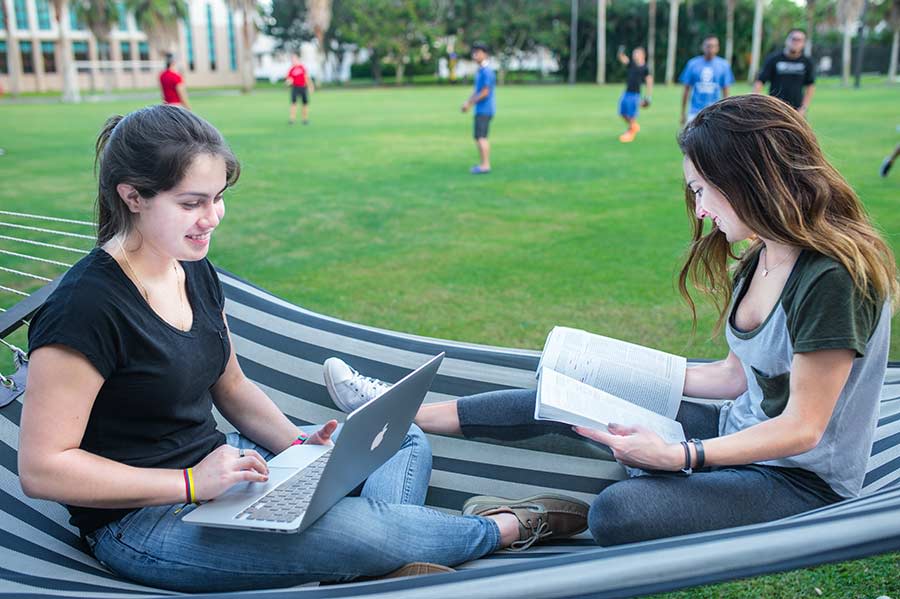
The solution: Peer mentoring
In fall 2022, Florida Atlantic rebranded and relaunched its peer mentorship program for first-time college students and transfer students. First-Year Connections was created in partnership with Mentor Collective.
“Our charge to mentors was, help connect students to campus and make them feel like they belong,” said Rebecca Goldstein, Ph.D., director of assessment and research for student affairs. “We’re not asking them to provide career advice or advice on classes, although they do. We’re really saying we want someone they can turn to at the university.”
Mentors are matched with mentees by identity, affinity and life experiences. (First-year students are paired with older undergraduates; transfer students are matched with faculty, staff and other transfers.) The university promotes First-Year Connections at student welcome sessions and orientation and via email, often from campus offices and student groups that incoming students have connected with.
The program doesn’t require mentees to visit a campus office or schedule an appointment with their mentors. They connect via a customized texting app that makes communication easy.
In the first year, most conversations between new students and their mentors were about classes and academics; finding places on campus to eat, study and hang out; how to get involved in campus life; and how to relieve stress and anxiety. But when heavier topics arose, such as switching majors, financial troubles or mental health concerns, mentors could flag a conversation, and student affairs could connect the mentee with a campus office that could support them.
“That allowed us to provide interventions a lot sooner that might otherwise have gone under the radar,” DiPentima said.
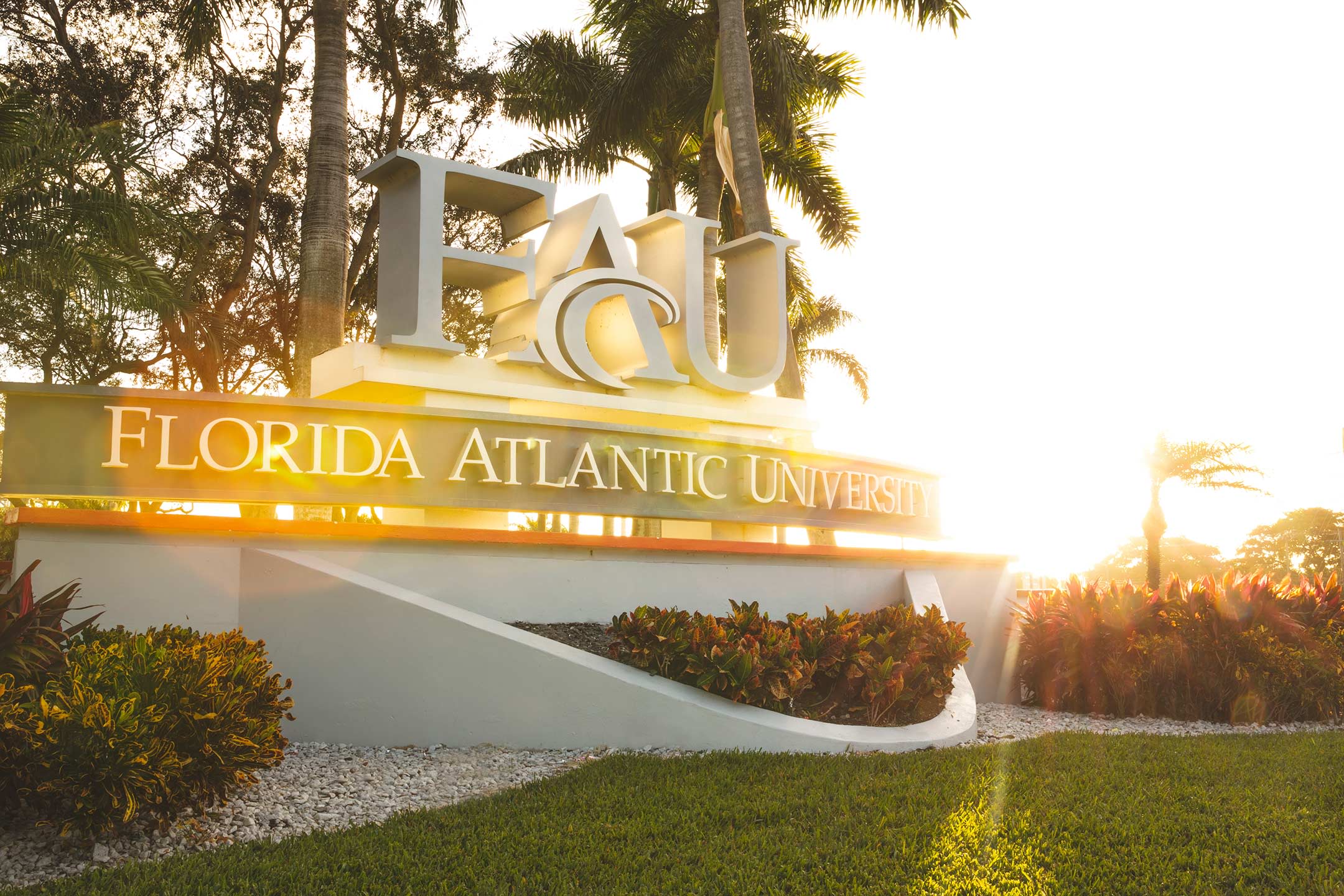
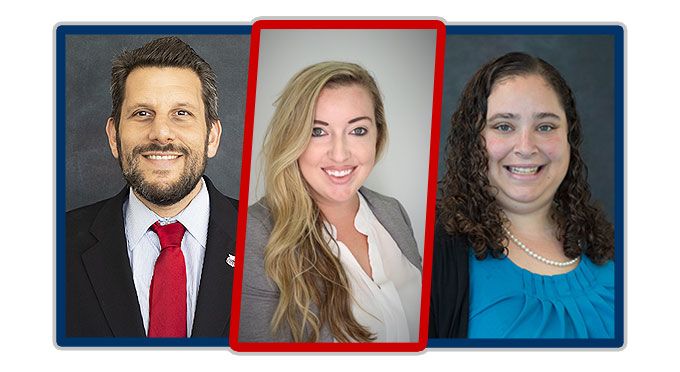
Left to right: Larry Faerman, Ph.D., vice president for student affairs; Jordan DiPentima, director of new student transitions and family engagement; Rebecca Goldstein, Ph.D., director of assessment and research for student affairs.
Left to right: Larry Faerman, Ph.D., vice president for student affairs; Jordan DiPentima, director of new student transitions and family engagement; Rebecca Goldstein, Ph.D., director of assessment and research for student affairs.
Higher persistence and retention
Right from the start, First-Year Connections scaled up dramatically. Last fall, it attracted 1,400 first-year and transfer students — more than three times the number who had participated in the previous peer mentoring program. These new students were matched with 550 mentors.
In 2022-23, mentors and mentees initiated nearly 7,000 conversations and exchanged more than 20,000 in-app text messages. More than half of the mentor-mentee matches engaged in what Florida Atlantic considers sustained mentorships — that is, three or more conversations. During the first semester alone, mentors also flagged more than 500 conversations for additional follow-up from Florida Atlantic’s professional staff.
Florida Atlantic leaders attribute First-Year Connections to increased student persistence. From fall 2022 to spring 2023, persistence rates for incoming students participating in the program were higher than their counterparts in all demographic categories — first-year, transfer, commuters, first-generation, males and students of color. The university also saw similar statistically significant differences in its fall-to-fall retention data.
Success has bred success. For fall 2023, participation in First-Year Connections grew to 1,800 students.
“We expected an immediate impact in our first year,” DiPentima said, “but the impact far exceeded our expectations.”
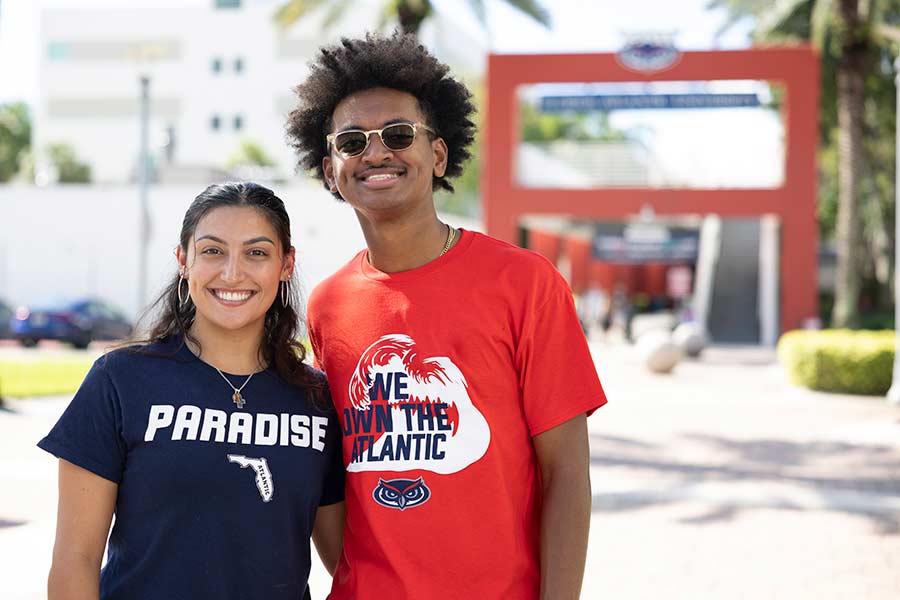
Advice for other institutions
Florida Atlantic leaders offered suggestions to other universities considering peer-mentoring programs:
Collaborate across the entire university.
Though First-Year Connections is the direct responsibility of DiPentima’s new student orientation office, multiple other Florida Atlantic offices across the university — including academic advising, financial aid and career services — are assisting students who require additional support. “That can create a web of student success,” Goldstein said.
Track the data.
Closely examining university data will reveal which student groups might benefit from mentorship programs. And because so many parts of the university are involved with peer mentoring, they will want to see results.
“You have to have ongoing data that shows the impact not only of the investment of time but also the investment of financial resources,” Faerman said. “This is very much a conversation at our executive table.”
Let students be students.
College students have busy lives, so mentorship should be a simple task, not a chore. By setting reasonable expectations for mentors and making it easy to connect to their mentees, mentors can just focus on helping other students. Mentees who have a good experience, meanwhile, might be willing to serve as mentors.
Keep an eye on ROI.
Peer mentorship programs are about retaining and graduating students. But they have benefits for institutions as well. Whenever a university retains a student, it collects three more years of tuition revenue, which more than covers the cost of the initiative and generates a positive return on investment.
At the end of the day, Goldstein said, “we’re creating an ecosystem that helps us show how we are serving students and whether a program is working. That’s the biggest thing.”
This custom content is sponsored by Florida Atlantic University and developed by Inside Higher Ed's sponsored content team. The editorial staff of Inside Higher Ed had no role in its creation.


